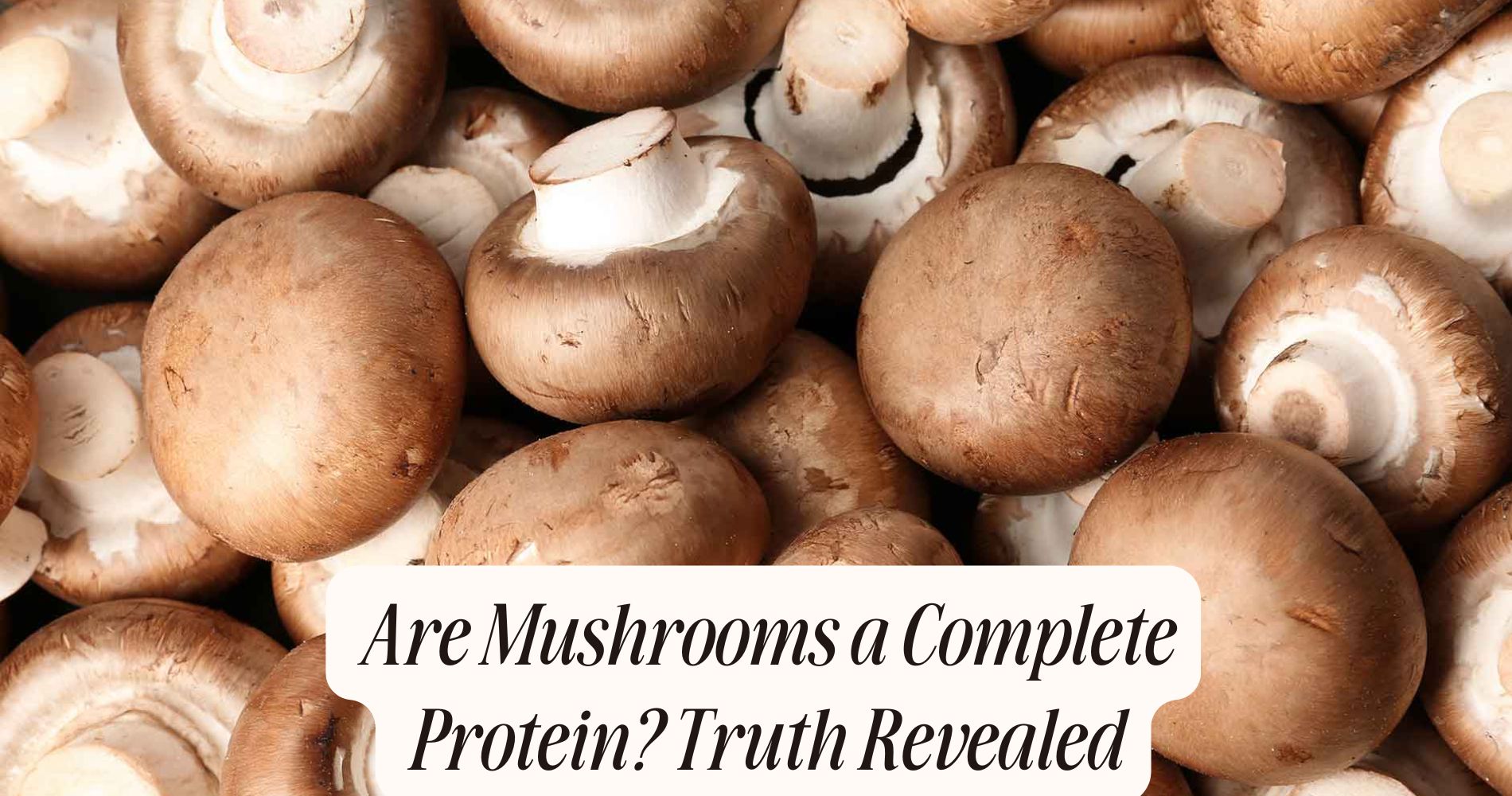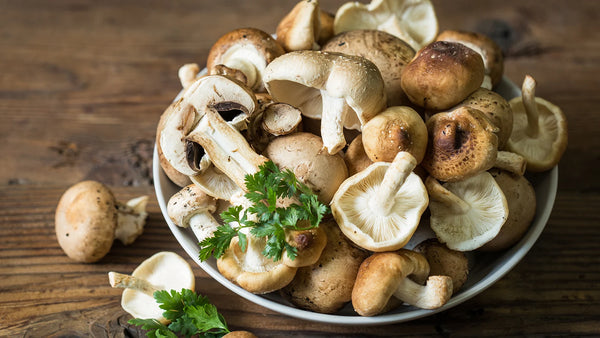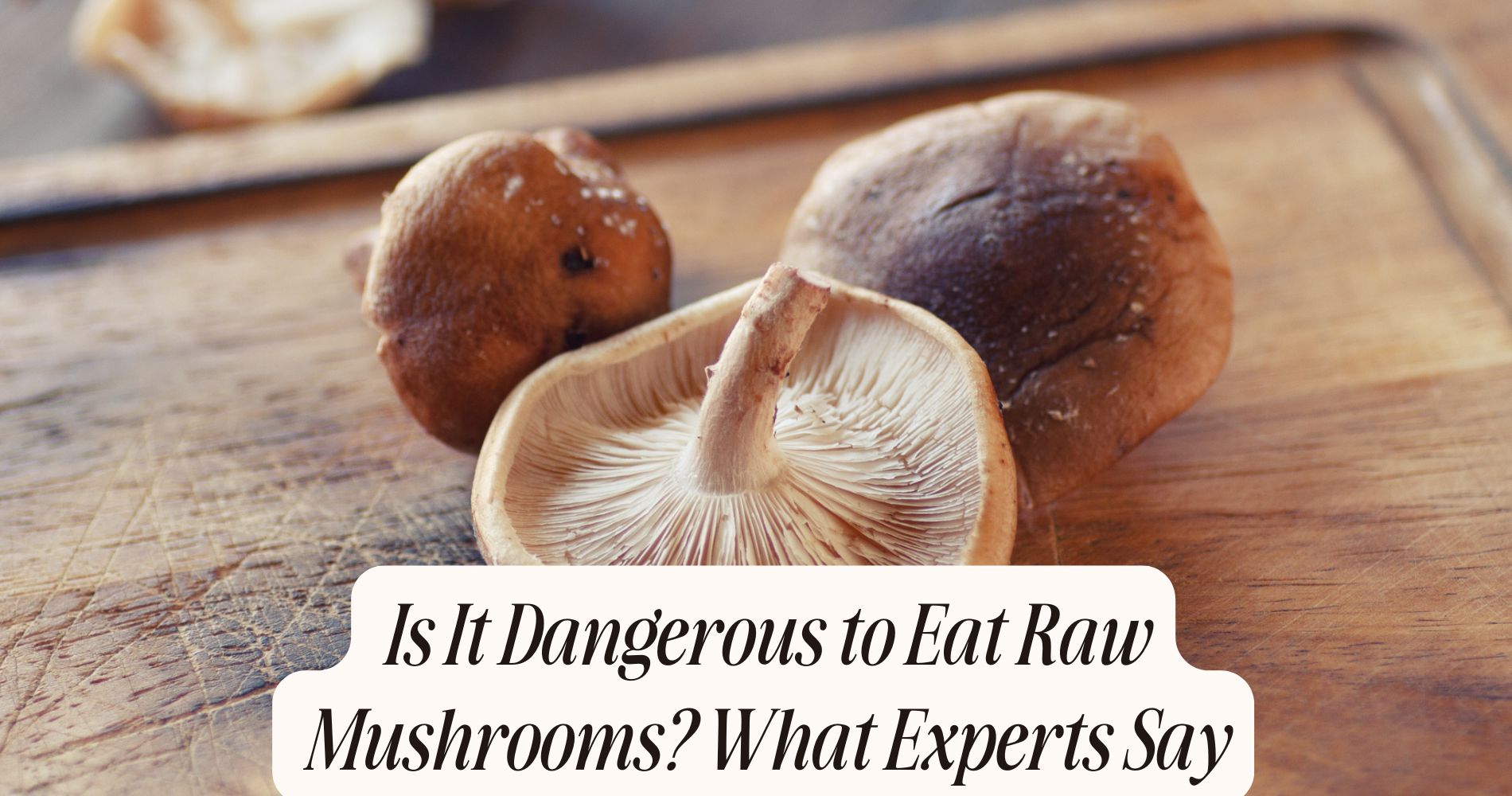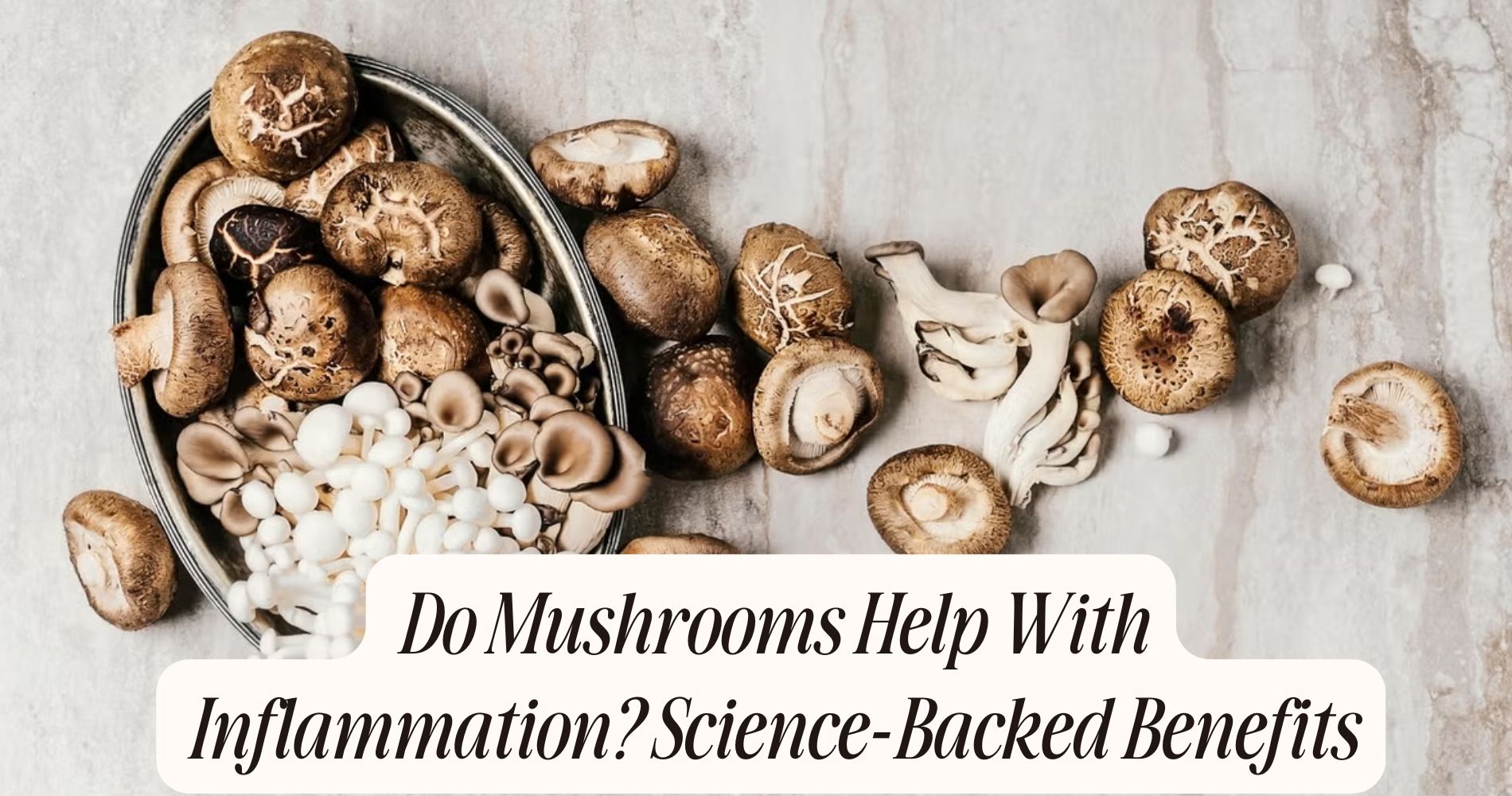
Are Mushrooms a Complete Protein? Truth Revealed
Are mushrooms a complete protein? Mushrooms aren’t a complete protein since they lack some essential amino acids vital for your diet. They contain between 2 to 4 grams of protein per 100 grams, but this falls short compared to animal sources like meat and dairy. While mushrooms provide valuable nutrients and can enhance the nutritional profile of meals, you'll want to combine them with other protein sources to guarantee a balanced intake. There's more to discover about how to include mushrooms in your diet effectively.
Understanding Protein and Complete Proteins
Protein is an essential macronutrient that plays an important role in building and repairing tissues, producing enzymes and hormones, and supporting overall bodily functions.
Your dietary requirements for protein depend on factors like age, sex, and physical activity level. It’s vital to include a variety of protein sources in your diet, such as meat, dairy, legumes, and nuts, to guarantee you’re getting all essential amino acids.

Complete proteins contain all nine essential amino acids your body can’t produce on its own. While animal-based proteins are typically complete, some plant-based sources can also meet these needs when combined properly.
Understanding these differences helps you make informed choices about your protein intake and supports your overall health and wellness.
The Nutritional Profile of Mushrooms
When you look at the nutritional profile of mushrooms, you'll find a unique macronutrient composition that sets them apart from other plant-based foods.
They provide a low-calorie option while still offering essential amino acids, although not in the complete range that some other protein sources do.
Understanding these elements is vital for evaluating their role in a balanced diet.
Macronutrient Composition
Mushrooms boast a unique macronutrient profile that sets them apart from many other food sources. They typically contain around 90% water, which contributes to their low calorie count.
The macronutrient ratios of mushrooms show a modest amount of protein, usually ranging from 2 to 4 grams per 100 grams, making them a good addition to a balanced diet. However, their protein digestibility varies, meaning that you may not absorb all the protein as efficiently as from animal sources.
Additionally, mushrooms provide essential carbohydrates and dietary fiber, enhancing their nutritional value. This combination of low calories, moderate protein content, and fiber makes mushrooms a versatile food choice for those seeking to optimize their macronutrient intake.
Essential Amino Acids
The nutritional profile of mushrooms reveals that while they offer some protein, they aren't a complete source of amino acids.
Different mushroom varieties, such as shiitake and portobello, present varying amino acid profiles, but none contain all nine essential amino acids in sufficient quantities.
For example, while mushrooms are rich in glutamic acid and aspartic acid, they typically lack adequate levels of isoleucine and lysine, which are vital for muscle repair and overall health.
This limitation means you'll need to pair mushrooms with other protein sources, like beans or grains, to achieve a balanced amino acid intake.
Understanding these profiles helps you make informed dietary choices and guarantees you’re meeting your nutritional needs effectively.

Essential Amino Acids Explained
Essential amino acids are the building blocks your body can’t produce on its own, which means you need to obtain them from your diet.
Understanding their role is critical for evaluating whether a food can be considered a complete protein.
In this discussion, you'll learn why complete proteins are essential for your overall health and how mushrooms stack up against other protein sources.
What Are Essential Amino Acids?
While many foods provide a variety of nutrients, not all of them contain the building blocks your body needs for ideal health—essential amino acids. These amino acids are essential because your body can’t produce them on its own, so you must obtain them through your diet.
There are nine essential amino acids: histidine, isoleucine, leucine, lysine, methionine, phenylalanine, threonine, tryptophan, and valine. Each of these plays a unique role in processes like protein synthesis, immune function, and hormone regulation.
Without sufficient intake of these essential amino acids, you may experience negative health effects, including muscle loss and weakened immunity. Recognizing sources of essential amino acids in your diet is important for maintaining peak health.
Importance of Complete Proteins
Understanding the importance of complete proteins is vital for anyone looking to enhance their health and nutrition. Complete proteins contain all nine essential amino acids your body needs for various functions, including muscle repair, immune support, and hormone production.
When you consume these proteins, you guarantee your body gets the necessary building blocks for optimal health.
Dietary sources of complete proteins include animal products like meat, dairy, and eggs, as well as certain plant-based options like quinoa and soy. Incorporating a variety of these complete proteins into your meals can help maintain balanced nutrition.
Pay attention to your protein sources; this can greatly impact your overall well-being and performance in daily activities.
Comparing Mushrooms to Other Protein Sources
When comparing mushrooms to other protein sources, it’s important to recognize both their strengths and limitations.
While certain mushroom varieties, like shiitake and oyster mushrooms, provide notable amounts of protein, they generally fall short compared to meat, dairy, or legumes. For instance, a cup of cooked shiitake mushrooms offers about 2.2 grams of protein, whereas a similar portion of chicken can yield around 28 grams.

Protein comparisons reveal that mushrooms lack some essential amino acids, making them less ideal as a sole protein source. However, their low calorie content and high nutrient density can complement a balanced diet.
Incorporating mushrooms with other protein-rich foods can enhance your nutritional intake while enjoying their unique flavors.
Types of Mushrooms and Their Protein Content
Different types of mushrooms offer varying levels of protein content, making them an interesting addition to your diet.
For instance, shiitake mushrooms not only provide a rich flavor but also come with notable shiitake benefits, including essential amino acids. They typically contain about 2.2 grams of protein per 100 grams.
On the other hand, portobello mushrooms are a fantastic source of portobello protein, boasting around 3.1 grams of protein per 100 grams. This makes them a heartier option for your meals.
Incorporating a variety of mushrooms can enhance your protein intake while adding unique flavors and textures.
The Role of Mushrooms in a Plant-Based Diet
Mushrooms play an essential role in a plant-based diet, offering not only unique flavors but also vital nutrients that contribute to overall health.
With various mushroom varieties, like shiitake, portobello, and oyster, you can easily incorporate them into your meals. Their culinary uses are diverse; whether you’re adding them to stir-fries, soups, or salads, they enhance taste and texture while providing vitamins, minerals, and antioxidants.
Mushrooms are low in calories yet high in fiber, making them an excellent choice for weight management. Additionally, their umami flavor can help satisfy cravings for meat, making them a valuable meat substitute.
Cooking and Preparing Mushrooms for Maximum Nutrition
To maximize the nutritional benefits of mushrooms, it’s crucial to understand the best cooking and preparation methods.
Sautéing techniques, such as using minimal oil and high heat, can enhance flavor while preserving nutrients. Avoid overcooking, as this may lead to nutrient loss.
Nutritional steaming is another effective method, allowing mushrooms to retain their water-soluble vitamins and minerals without added fats.
Additionally, consider making mushroom broths, which can extract beneficial compounds while infusing flavor into your dishes.
By incorporating these methods, you'll not only enjoy the rich taste of mushrooms but also guarantee you're reaping their full nutritional potential.
Prioritize these techniques to get the most out of your mushroom consumption.

Potential Health Benefits of Mushrooms
Cooking methods that enhance the flavor and preserve the nutrients of mushrooms also set the stage for appreciating their potential health benefits.
Rich in vitamins and minerals, mushrooms provide immune support and contribute to gut health, thanks to their fiber content. Their antioxidant properties help combat oxidative stress, promoting heart health and offering anti-inflammatory effects that can alleviate chronic conditions.
Additionally, low in calories and high in nutrients, mushrooms can aid in weight management by keeping you satiated without unnecessary calories.
Incorporating Mushrooms Into Your Meals
When you're looking to elevate your meals, incorporating mushrooms can add depth and nutrition without overwhelming flavors.
These versatile fungi can be included in a variety of mushroom recipes, from hearty soups to savory stir-fries. Consider pairing mushrooms with grains like quinoa or brown rice for a complete meal. Their umami-rich profile complements vegetables and proteins well, enhancing the overall taste experience.
For instance, sautéed portobello mushrooms can serve as a delicious meat alternative in burgers. You can also add them to salads for a satisfying crunch.
Experimenting with different types of mushrooms, like shiitake or oyster, can expand your culinary repertoire and introduce new textures and flavors to your meal pairings. Enjoy the nutritional benefits while savoring each bite!
Unlock the Power of Mushrooms with SUPER MUSHROOM GUMMIES
Looking for a convenient way to enjoy the benefits of mushrooms and support your protein intake? Well Gummies’ SUPER MUSHROOM GUMMIES are packed with 10 types of functional mushrooms, naturally fueling your brain, boosting focus, and supporting immune health. These vegan gummies provide energy without the jitters or crashes, and with a delicious wild berry flavor, they taste just like your favorite candy. Stay sharp, energized, and balanced all day long with SUPER MUSHROOM GUMMIES!
Frequently Asked Questions
Can Mushrooms Help With Muscle Recovery After Workouts?
Mushrooms can aid your muscle recovery by reducing muscle soreness. They contain antioxidants and anti-inflammatory properties that promote healing. Including them in your post-workout meals might enhance recovery benefits, helping you bounce back faster.
Are There Any Allergies Associated With Eating Mushrooms?
Yes, some people have mushroom allergies that can lead to allergic reactions. Symptoms may include hives, gastrointestinal issues, or respiratory problems. If you suspect an allergy, it's best to consult a healthcare professional for advice.
How Do Mushrooms Compare to Animal Protein Sources?
When comparing mushroom nutrition to animal protein sources, you'll find that mushrooms offer lower protein quality. While they provide essential nutrients, they lack certain amino acids, making them less complete than animal-based proteins in your diet.
Can Mushrooms Provide Enough Protein for Athletes?
Mushroom varieties can be beneficial for athletes, but their protein content isn't as high as traditional sources. Incorporating them into a balanced diet can complement your protein intake but shouldn't replace primary sources entirely.
Are There Any Side Effects From Consuming Too Many Mushrooms?
Eating too many mushrooms can lead to digestive issues and potential mushroom toxicity, especially with wild varieties. It’s best to enjoy them in moderation to avoid any adverse effects on your health.
Conclusion
To sum up, while mushrooms aren't a complete protein source on their own, they offer valuable nutrients and can complement other protein sources in your diet. By understanding their nutritional profile and combining them with foods rich in essential amino acids, you can enhance your overall protein intake. Incorporating various types of mushrooms into your meals not only boosts flavor but also contributes to a balanced, plant-based diet that supports your health.




